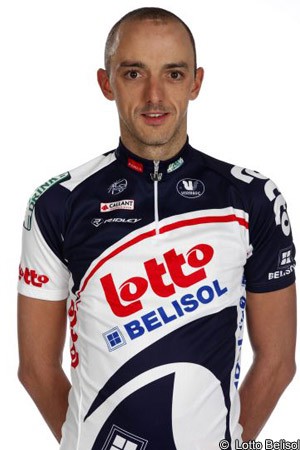Riders say personal experience has shown them the sport is cleaner
 The Lotto-Belisol team has become part of the Mouvement Pour un Cyclisme Crédible [Movement for a Credible Cycling – MPCC] and has said that it is committed to doing things in the correct way as the sport tries to recover from the out of control chaos highlighted by the US Postal Service investigation.
The Lotto-Belisol team has become part of the Mouvement Pour un Cyclisme Crédible [Movement for a Credible Cycling – MPCC] and has said that it is committed to doing things in the correct way as the sport tries to recover from the out of control chaos highlighted by the US Postal Service investigation.
Two of the team’s riders, Jelle Vanendert and Jurgen Roelandts, have said that they believe things are much cleaner than before, and that their successes are an example of that.
“In my first year as a pro in 2008 I was already Belgian champion,” said Roelandts to Sporza. “That couldn’t previously have happened, or would have been a lot more difficult. Many young riders can now quickly make a name. That’s a good sign.
“It [the sport] can certainly be done without doping. I was quite ill during the last week of the Tour, but I was still able to finish. You can do it now even if you are lacking a little.”
Team-mate Jelle Vanendert made a name for himself in the 2011 Tour de France, winning a stage and wearing the King of the Mountains jersey for several days. This year he was runner up in the Amstel Gold race and also fourth in Flèche Wallonne, thus continuing to develop. He refers to the Armstrong case as old news, but complains that current riders still suffer knocks to their reputation when the details of that investigation became public.
“The new generation can not do much about what happened with Armstrong,” he counters. “I think there is less doping. There will always be cheaters, but if that happens, they are held back by the biological passport.”
The Tour de France is said by many to be slower than before, as has been suggested by the times on several known climbs such as Alpe d’Huez. “I’ve always said that I will stay away from it,” continued Vanendert, referring to doping. “I prefer a long career in which I am slightly less in the limelight. But I understand that some guys can not resist the temptation.”
His team manager Marc Sergeant believes the monitoring of the riders’ blood profiles has made a difference. “There’s been a turning point since the biological passport,” he said. “When that happened, suddenly Vanendert could take a mountain stage win in the Tour. He was previously unable for that.”
Sergeant states that membership of the MPCC is one way that the team has tried to help the sport move forward.
“After the Armstrong case, we wondered: what more can we do?” he asked. “This was one of the answers.”